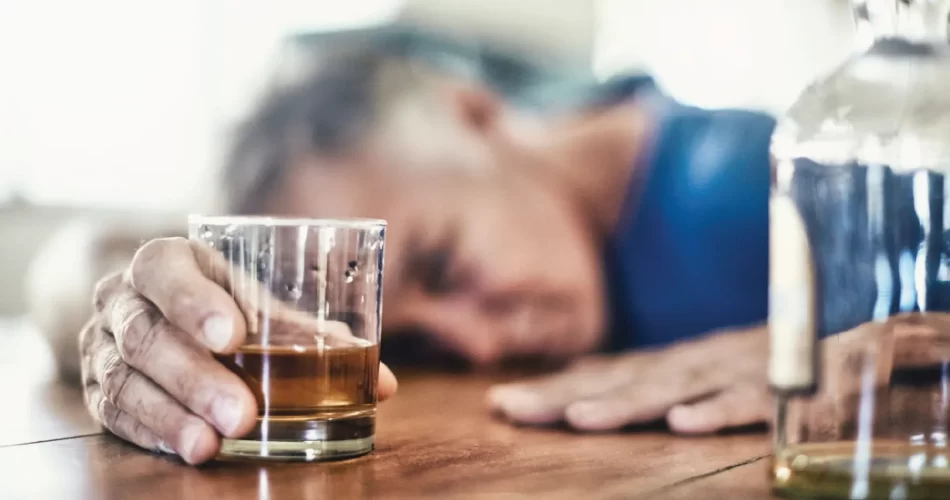Last Updated on 4 March 2024 by Vanessa Thoko
Anxiety after drinking, also known as hangxiety, a common phenomenon.
It can be caused by a number of factors, including:
- The effects of alcohol on the brain.
- Dehydration.
- Poor sleep.
- Withdrawal symptoms.
- Guilt or regret.
In this post, we’re going to talk about why anxiety after drinking happens, how it relates to South Africa, and some practical tips to help you deal with it.
Key Facts
- Anxiety after drinking is common and is known as “hangxiety.”
- Causes include alcohol’s effects on the brain, dehydration, poor sleep, withdrawal symptoms, and feelings of guilt or regret.
- Alcohol initially reduces anxiety symptoms but can worsen them in the long run.
- Dehydration and sleep disruption caused by alcohol can exacerbate anxiety.
- Coping strategies include moderation, eating while drinking, staying hydrated, getting enough sleep, and avoiding caffeine and nicotine.
- Seek professional help if anxiety after drinking is severe, recurring, or interfering with daily life.
- Treatment options may include therapy, medication, or a combination of both.
- Understanding the connection between alcohol and anxiety is vital for effective management.
- Prioritizing mental well-being and seeking help when needed is essential.
Understanding Alcohol And Anxiety

Alcohol and anxiety have a complex relationship.
While alcohol can initially seem to reduce anxiety symptoms, it can actually make them worse in the long run.
Alcohol is a depressant, which means it slows down the central nervous system.
This can lead to feelings of relaxation and euphoria in the short term.
However, as the alcohol wears off, the brain can rebound and become overactive, leading to feelings of anxiety and restlessness.
Alcohol can also interfere with sleep, which can make anxiety worse.
When you don’t get enough sleep, your body produces more stress hormones, which can trigger anxiety symptoms.
In addition, alcohol can dehydrate the body, which can also contribute to anxiety.
Dehydration can cause headaches, fatigue, and irritability, which can worsen anxiety symptoms.
Finally, some people may feel guilty or regretful about things they did or said while drinking, which can contribute to hangxiety.
If you have an anxiety disorder, it is important to avoid alcohol. Alcohol can make your anxiety symptoms worse and make it more difficult to manage your condition.
If you are struggling with both anxiety and alcohol use, it is important to seek professional help. Get a therapist can help you to understand the relationship between alcohol and anxiety, and develop healthy coping mechanisms.
Causes

- The effects of alcohol on the brain: Alcohol is a depressant, which means it slows down the central nervous system. This can lead to feelings of relaxation and euphoria in the short term. However, as the alcohol wears off, the brain can rebound and become overactive, leading to feelings of anxiety and restlessness.
- Dehydration: Alcohol is a diuretic, which means it causes the body to lose fluids. Dehydration can lead to a number of symptoms, including headache, fatigue, and irritability, which can all worsen anxiety symptoms.
- Poor sleep: Alcohol can interfere with sleep by disrupting the sleep cycle. When you don’t get enough sleep, your body produces more stress hormones, which can trigger anxiety symptoms.
- Withdrawal symptoms: If you drink heavily on a regular basis, you may experience withdrawal symptoms when you stop drinking, such as anxiety, sweating, and tremors.
- Guilt or regret: Some people may feel guilty or regretful about things they did or said while drinking, which can contribute to hangxiety.
Coping Strategies

- Drink in moderation: If you do choose to drink, limit yourself to two drinks for women or three drinks for men per day.
- Eat before and while you drink: Food helps to slow down the absorption of alcohol into the bloodstream.
- Drink plenty of water: Alternate alcoholic drinks with non-alcoholic drinks, such as water or juice.
- Get enough sleep: Aim for 7-8 hours of sleep per night.
- Avoid caffeine and nicotine: Caffeine and nicotine can worsen anxiety symptoms.
- Practice relaxation techniques: Activities such as deep breathing, meditation, and yoga can help to reduce anxiety.
When To Seek Professional Help

You should see a professional for anxiety after drinking if:
- Your anxiety is severe or interferes with your daily life.
- You have frequent or recurring episodes of hangxiety.
- You have other symptoms of an anxiety disorder, such as panic attacks, obsessive-compulsive thoughts, or social anxiety.
- You are concerned about your drinking habits.
- You have tried self-help strategies but they have not been effective.
A mental health professional can help you to understand the causes of your anxiety and develop a treatment plan.
Treatment for anxiety may include therapy, medication, or a combination of both.
Take Away
Anxiety after drinking is a real issue, and it’s something many people experience, including in South Africa.
Understanding the connection between alcohol and anxiety is the first step towards managing it effectively.
Remember, it’s okay to seek help, and it’s crucial to prioritize your mental well-being.
By following the coping strategies you can navigate this common challenge with greater ease. Your mental health matters.










